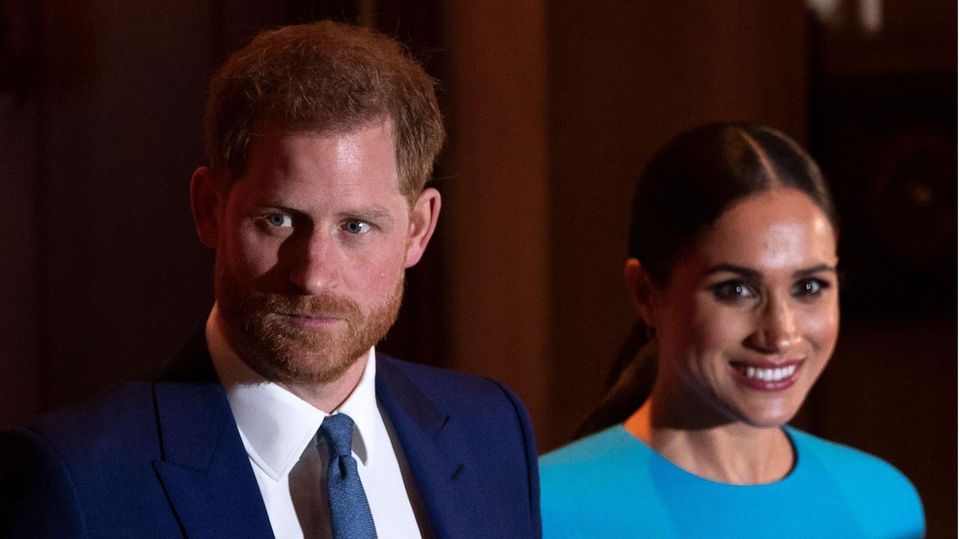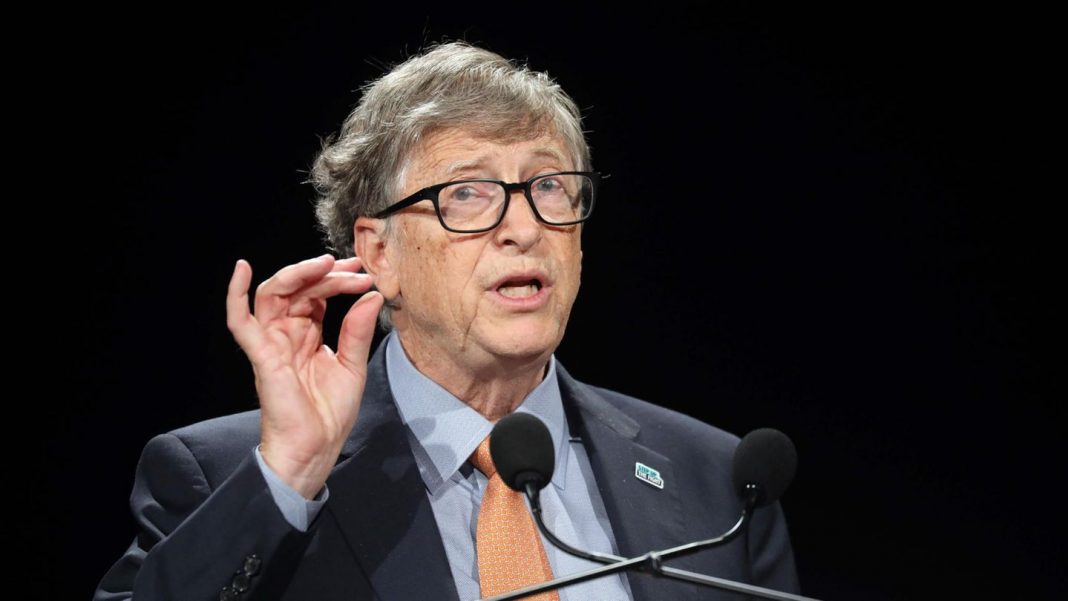Should life-saving vaccines remain patented? Yes, finds Bill Gates. And so he sticks to the strategy that once made him the richest man in the world.
Vaccine envy, that describes the jealousy of people who have already received their Covid syringe, while you have to wait for it yourself. If one looks at the global situation, a vaccination rage is likely to occur soon. For many of the poorer states can only stand by while the rich West inoculates itself. In the opinion of many of these states, the patents used by vaccine developers to protect themselves from cheap imitators are also to blame. One of their most important supporters is Bill Gates of all people.
This may be irritating at first. Long before the worldwide corona outbreak, Gates warned of the consequences of a possible pandemic, and with the foundation run jointly with his currently separated wife Melinda, he had dedicated himself above all to fighting diseases in poorer parts of the world. And yet Gates’ refusal to release vaccines is exactly the same as he once made Microsoft really big with.
Gates wants to keep patents
Gates ‘ position in the dispute over the release of the patents is well documented. Again and again, the multi-billionaire affirms that patents for the protection of vaccine formulas should not be revoked in order to increase global production. His reasoning sounds quite understandable. He is sure that what restrains vaccination speed is not the issue of intellectual property. “There is only a limited amount of vaccine factories in the world. People take the safety of vaccines very seriously. If you do something that has never been done before, such as moving production from a Johnson & Johnson factory to India-it’s just a novelty. It was only because of our subsidies and our expertise that this could happen.”
Gates is not alone in his assessment. When US President Joe Biden proposed to revoke the patents in April, he quickly faced headwinds in his own country – and also from the EU. Chancellor Merkel also sided with the companies. In addition to the fact that the global vaccine producers are already working on the attack, however, sticking to the patents is also an ideological question. The idea behind this is that of creative capitalism: only when companies can make profits do they take on the high research costs at all, according to the logic that Merkel has already publicly advocated.

Patents were Microsoft’s recipe for success
The fact that Gates’s statement nevertheless provokes a violent reaction is probably also due to the fact that many feel reminded of the time when he made Microsoft the most valuable company in the world with his brutal patent dispute. That Gates was not always the nice uncle, who spreads with smart jokes and a lot of sympathy wisdom about pandemic control, will not be remembered by younger people. But during the eighties and nineties Gates was especially notorious for his often unscrupulous business sense.
Especially with regard to intellectual property, Gates showed himself merciless from the beginning. In the seventies, when computer enthusiasts were primarily interested, Gates, then 20 years old, wrote an “open letter to hobbyists”-threatening to prosecute anyone who gave a copy of Microsoft Basic to others without a purchased license. Even then, he expressed his conviction that only the prospect of profit could provide real innovation.
Foundation in the criticism
The fact that this attitude is currently viewed particularly critically is due to the fact that it is also explicitly the basis of the Gates Foundation. “We finance the research and if we or our partners create something, we have it protected. If something is invented with the money of our Foundation, it goes first in the rich countries. We are actually making a profit with our money, ” Gates said in a speech about vaccines. And that already in 2011. Only through these profits it is then later possible to supply the poorer countries more cheaply.
This quite understandable position is questioned more and more frequently. There is growing anger in many countries that the West, in particular, supplies itself with vaccines and sometimes even pays lower prices for them. For example, South Africa is said to have paid almost twice as much for a dose of Astrazeneca as the EU states, reported the “Guardian”. In an extreme formulation, there is talk of “vaccination apartheid”. It is therefore not surprising that the Gates Foundation for the defence of the strategy also comes under criticism. “To whom do you have to justify yourself? They don’t even have a clear command structure,” Kate Elder, a consultant for Doctors without Borders on vaccines, complained to “The Nation”back in October. “We see less and less information coming from the foundation. They leave most of our requests unanswered. They don’t even let their technical staff talk to us about the strategic direction regarding Covid.”
Investment in Vaccine
In fact, the foundation also has financial incentives for Covid vaccines, as “The Nation” has pointed out. For example, the foundation supported the German company Biontech with 55 million euros to advance the discovery of a Covid vaccine. Already in 2015, the foundation invested 46 million euros in the pharmaceutical company CureVac-explicitly for the development of mRNA vaccines. The Dutch company based in Tübingen made headlines last year when Donald Trump wanted to buy it. The Covid vaccine, which was already under development at the time, is still not on the market, but it is considered a strong candidate for the fight against future corona mutants. The federal government has indirectly provided 300 million dollars for development. The EU has already ordered 405 million cans from the company, reports the “Redaktionsnetzwerk Deutschland”.
It is not yet clear whether the company may make profits with the vaccine according to the will of the Gates Foundation. In an agreement between the Foundation and the company signed in 2015, “The Nation” discovered passages according to which the company undertook to make a vaccine developed with funds from the foundation “available and accessible to people in need at a reasonable price”. In addition, the foundation will also be granted numerous licensing and distribution rights in case the company leaves its charitable obligations or goes bankrupt.
But whether this is still valid is unclear. Neither the foundation nor the company wanted to answer several questions from “The Nation”. In the course of the IPO of CureVac, documents have also surfaced, according to which the company has been relieved of its charitable obligation, according to the news site. But the passage is not about Covid, explained a spokesman of the company GlaxoSmithKline “The Nation”. The company collaborates with CureVac in the preparation of the corona vaccine. However, the company did not want to reveal which products it is interested in instead.
The Gates Foundation, however, has decided to turn around in the face of headwinds: “There should be no barriers to equitable access to vaccines, including intellectual property restrictions,” said the foundation’s CEO, Mark Suzmann, in a statement. Just a few days before, Bill Gates had confirmed his belief in the patents. Since then, he has not commented on it.
Source: Sky-Interview, The Nation, Redaktionsnetzwerk Deutschland, The Guardian, Mail and Guardian, Statement der Stiftung



